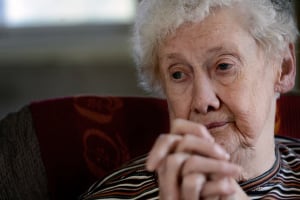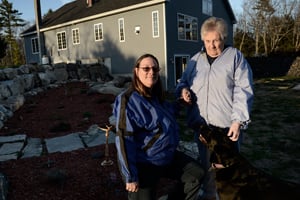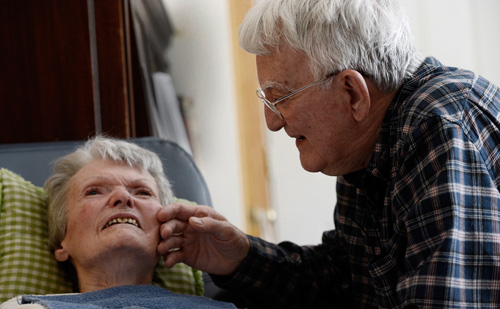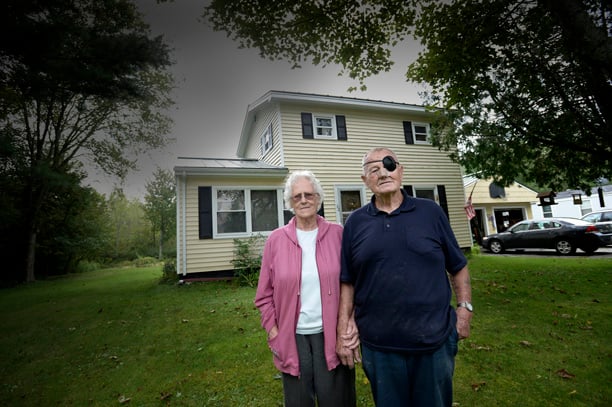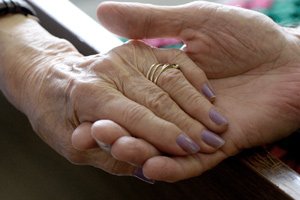When a doctor diagnosed Donna Beveridge’s memory loss as Alzheimer’s disease and prescribed medication to help ease her symptoms, it failed to bring the sense of relief she had hoped for.
T
he doctor didn’t address her again for the rest of the appointment and spoke instead to the person who was with her.
“I had already ceased being a person to him,” recalled Beveridge, 70, a retired licensed clinical social worker.
Since then, Beveridge has seen several other doctors, participated in clinical trials and joined a web-based support group, all to get a clearer sense of her condition. Her health has stabilized since she was diagnosed with sleep apnea, a breathing disorder that can cause a variety of health problems, including memory loss.
“But I’m still wondering if I have Alzheimer’s because I’m not following the pattern that most people do,” Beveridge said. “I don’t think doctors and the medical profession in general know much about the early stages of Alzheimer’s, and I don’t think society is ready for the number of people who are being diagnosed with the disease.
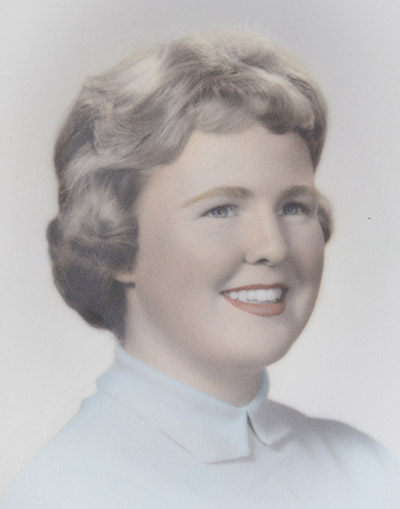
Donna Beveridge of Saco is shown in her younger days in this 1961 photograph.
Courtesy photo
Alzheimer’s is a common type of dementia that causes memory, thinking and behavior problems, with symptoms that develop slowly and worsen over time. It and other forms of dementia are drawing attention to the lack of physicians, nurses and other health care workers who are trained in geriatric conditions such as memory loss, arthritis and incontinence, especially in more rural counties.
The “State Plan for Alzheimer’s Disease and Related Dementias in Maine,” released in March, found widespread stigma and ignorance associated with the disease; late diagnoses and spotty and ineffective medical care; lack of support for family caregivers; and limited access to quality long-term care.
The report calls on state agencies, business leaders and philanthropic groups to make Alzheimer’s a priority and to solve these problems.
Maine already has a shortage of doctors trained to meet seniors' needs, and the state’s growing elder population will only increase demand, said Dr. Roger Renfrew, a certified geriatrician who practices at Redington-Fairview General Hospital in Skowhegan.
To promote geriatric practices across the state, Renfrew is leading an effort to start a Maine chapter of the American Geriatrics Society, a national organization of more than 6,000 health care professionals.
Maine had 48 certified geriatric physicians in 2012, when it needed 42 additional practitioners, according to the society. In 2030, the state will need a total of 160 geriatricians to care for seniors with the greatest medical needs, which is about 30 percent of the population age 65 and older, or about 112,000 people.
-
CONSIDER THIS
According to the AARP Public Policy Institute, Maine ranks No. 1 in the nation for proportion of nursing home residents with dementia (55 percent) and No. 49 for proportion nursing home residents with low care needs (2 percent), indicating that few Mainers are inappropriately placed in higher-cost nursing facilities.
Nationally, there’s one geriatrician per 1,740 seniors in the most vulnerable category, the geriatrics society reports. Given that each geriatrician can care for about 700 people, the nation needs an additional 10,315 geriatricians now and 23,680 more by 2030 to care for the most vulnerable seniors.
The Maine Medical Association doesn’t keep track of geriatricians, but it does count rheumatologists. Maine has 16 arthritis specialists, and several of them are ready for retirement, said Gordon Smith, association spokesman. Months-long waits for appointments are common, especially for new patients.
The Alzheimer’s Association, Maine Chapter, lists 26 geriatric physicians, 22 geriatric mental health care professionals and eight memory clinics across the state. Though not a complete list, several of Maine’s 16 counties appear to have few or no geriatric practitioners, including Aroostook, Franklin, Hancock, Lincoln, Knox, Oxford, Piscataquis, Sagadahoc, Somerset, Waldo and Washington counties. Androscoggin, Cumberland, Kennebec, Penobscot and York counties appear to have better but still limited access to geriatric care.
-
CONSIDER THIS
Long-term care costs are expected to grow as the number of Mainers with Alzheimer’s disease increases a projected 43 percent in the next several years, from 37,000 today to 53,000 in 2020, as a result of longevity, better diagnoses and increased awareness of the disease.
Alzheimer’s Association, Maine Chapter
-

Finding help
Find Alzheimer's diagnosis and support services near you on our resources page.
Despite the need, few medical schools require geriatric coursework or clinical rotations, said Marilyn Gugliucci, director of geriatrics education and research in the College of Osteopathic Medicine at the University of New England. State and national employment projections don’t include geriatric professions.
In 2010, only 75 medical residents entered geriatric fellowship programs nationally, down from 112 in 2005, according to the geriatrics society.
The lack of interest in geriatrics is surprising, Gugliucci said, because doctors who work with elders report high job satisfaction. However, Medicare doesn’t recognize geriatrics as a specialty for billing purposes and other specialties are considered more profitable.
UNE operates the federally funded Maine Geriatric Education Center to provide training for professionals in the field and several Maine hospitals have programs geared toward seniors, including Maine Medical Center’s Outpatient Geriatric Programs.
Renfrew hopes that establishing a Maine chapter of the American Geriatrics Society will encourage other doctors and health care workers to incorporate geriatric practices into their work, such as surveying patients for memory loss and encouraging seniors to make their homes fallproof.
“The question is: how do we get principles of geriatric care adopted by primary care physicians?” Renfrew said. “Because we’re never going to have enough geriatricians.”
in her words
an interview with Donna Beveridge
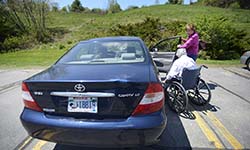
Nancy Wise
The trouble with transportation
In a largely rural state that makes isolation all too real for many, Nancy Wise of Farmingdale takes the wheel herself, providing her elderly neighbors with the gift of mobility. And while she says she's happy to do it, she also admits: 'There aren't enough of us.'

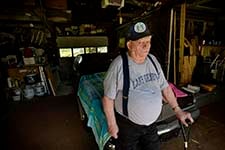
Stanley Main
The menace of abuse
With advanced age comes vulnerability to physical, emotional and financial threats, sometimes even at the hands of those we should trust the most. Just ask Stanley Main, 82, of South Portland.

Further Discussion
Here at
PressHerald.com we value our readers and are committed to growing our community by encouraging you to add to the discussion.
To ensure conscientious dialogue we have implemented a strict no-bullying policy. To participate, you must follow our
Terms of Use.
Questions about the article? Add them below and we’ll try to answer them or do a follow-up post as soon as we can.
Technical problems? Email them to us with an exact description of the problem. Make sure to include:
- Type of computer or mobile device your are using
- Exact operating system and browser you are viewing the site on (TIP: You can easily determine your operating system here.)
